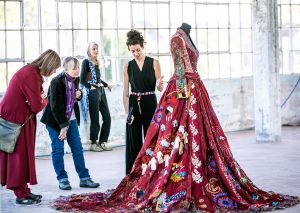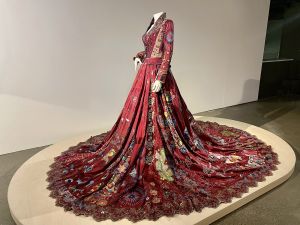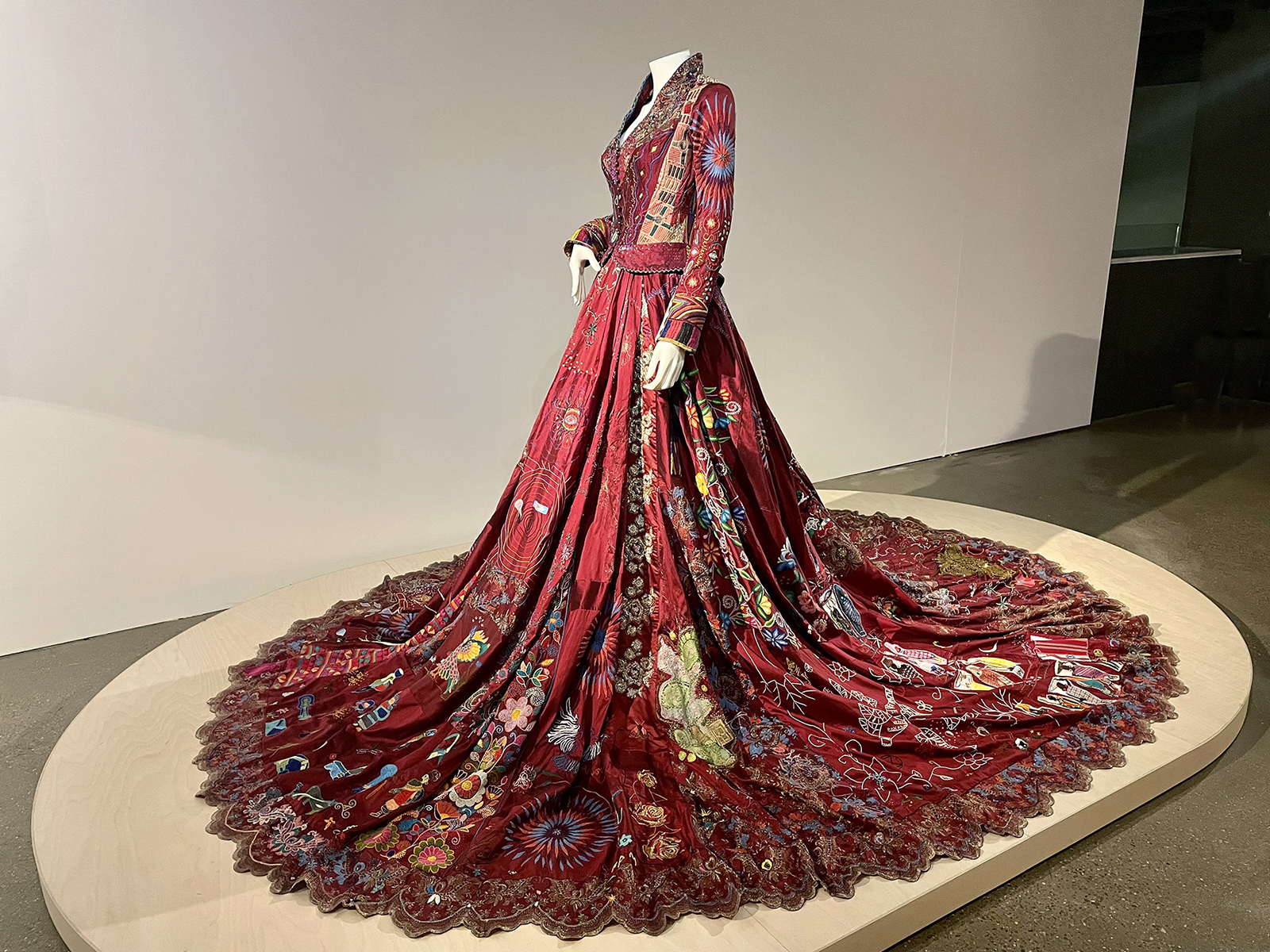We are thrilled that Kirstie MacLeod has accepted Emma Bevan’s invitation to bring her amazing Project to the Melville Centre for the weekend of 8th and 9th, October 2022!
You will have the opportunity to watch the film and listen to Kirstie’s story, and ask questions – the film and talk will take place at 10:30am, and then at 1:00pm (please arrive 10 minutes before it begins).
You will also have the opportunity to buy a copy of the crowd-funded Red Dress catalogue, or one of the postcards.
* NB: Please pre-register for a seat as we have a limited number of seats, thank you. Email: info@melvillecentre.org.uk – and please specify which day and time you prefer * REGISTRATION CLOSES on 21st September
_____________________________
Leading on from this weekend, Emma Bevan, with the support of the Melville Centre, and Ginevra Croft, will be coordinating a community project “Connecting Communities” with anyone interested in taking part: Creating a Community Shawl.
You can donate your square – it can be created by knitting, embroidering, felting, printing, crocheting or sewing squares, which will then be sewn together to create the Community Shawl, a representation of warmth, safety, and community, with a nod to the Welsh shawl. The shawl can be displayed at events or exhibitions and worn during talks.
You can donate your square – it can be created by knitting, embroidering, felting, printing, crocheting or sewing squares, which will then be sewn together to create the Community Shawl, a representation of warmth, safety, and community, with a nod to the Welsh shawl. The shawl can be displayed at events or exhibitions and worn during talks.
Please email emma.events9@gmail.com if you would like to take part. Completed pieces can be dropped off or posted to: The Wool Croft, Neville Street, Abergavenny NP7 5AD and the deadline is 11th December 2022.
__________________________________
THE RED DRESS:
A 13-year, award winning global, collaborative embroidery project
2009 to 2022
2009 to 2022
The Red Dress project, conceived by British artist Kirstie Macleod, provides an artistic platform for women around the world, many of whom are marginalized and live in poverty, to tell their personal stories through embroidery.
From 2009 to 2022, pieces of the Red Dress travelled the globe being continuously embroidered onto. Constructed out of 84 pieces of burgundy silk dupion, the garment has been worked on by 336 women and 7 men, from 46 countries, with all 136 commissioned artisans paid for their work (as well as receiving a portion of all ongoing exhibition fees). The rest of the embroidery was added by willing audience at various exhibitions & events.
Embroiderers include female refugees from Palestine and Syria, women seeking asylum in the UK from Iraq, China, Nigeria and Namibia, victims of war in Kosovo, Rwanda, and DR Congo; impoverished women in South Africa, Mexico, and Egypt; individuals in Kenya, Japan, Turkey, Sweden, Peru, Czech Republic, Dubai, Afghanistan, Australia, Argentina, Switzerland, Canada, Tobago, Vietnam, Estonia, USA, Russia, Pakistan, Wales, Colombia and England, students from Montenegro, Brazil, Malta, Singapore, Eritrea, Norway, Poland, Finland, Ireland, Romania and Hong Kong as well as upmarket embroidery studios in India and Saudi Arabia.







